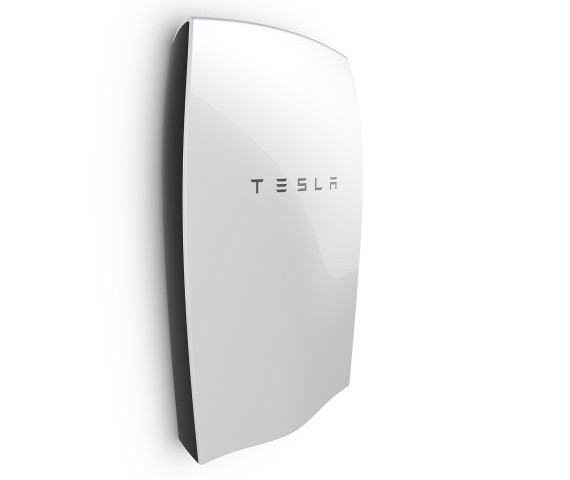think one of the lessons of the day is to trust Elon Musk. When he said approximately a month ago that Tesla would be announcing a “major new product line†on April 30, he wasn’t using the term “major†in a light way. [Full Disclosure: I’m long (very long) TSLA.]
As someone who follows the battery industry very closely, I know that there are a lot of startups and large corporations looking to get a huge chunk of the battery storage market for themselves via their own innovations, competitive advantages, and perhaps even breakthroughs. It made me a bit cautious in getting excited about Tesla’s announcement. Furthermore, while the market is expected to grow in leaps and bounds, it’s still a tough financial sell for the huge majority of homeowners in the developed world.
However, I have also read on a number of occasions that Tesla has the lowest-priced battery packs among all electric car manufacturers, and that the scale of production it would gain from the Gigafactory it is building with Panasonic would enable even deeper price cuts. However, it was hard to figure out how all of that might translate to the stationary storage market, and allow it to compete in this market (where home storage is still dominated by low-cost lead-acid batteries, and grid storage can be provided via flow batteries and other technologies).
Yes, there were pilot rollouts of Tesla’s batteries pegging them at about $13,000 for 10-15 kWh systems. I didn’t want to base any guesses off of those prices, as I knew they could be far higher than the commercial products (they seemed far too high given the estimated per kWh price of Tesla’s car battery packs). Indeed, they were. Here’s the key statement on price from Tesla on price: “Tesla’s selling price to installers is $3500 for 10kWh and $3000 for 7kWh. (Price excludes inverter and installation.) Deliveries begin in late Summer.“
Unfortunately, that leaves out the inverter and installation costs, but still, this is a very low price for lithium-ion battery packs. “Nothing remotely in these price points,†Elon reportedly noted at the product release last night (or early this morning, my time).
As an example, a company I love — Sungevity — just this week announced a partnership with Sonnenbatterie. The price isn’t finalized, but it is expected to start below $10,000. “Below $10,000†certainly doesn’t make it sound close to $3,000. However, a CleanTechnica reader and advisor has noted to me, “One other thing on the comparison with Sonnenbatterie, last I saw, their system includes the three-phase inverter ($3,000–5,000?), with fifteen-year warranty, so the price comparison might be seen as an apple and oranges kind of thing.†[Note: I’m going to reach out to these companies as well as several other battery storage companies for a follow-up article featuring their comments.]
Price is the key, and that was the big question mark for me in whether or not this was a “major†announcement or just another announcement. Obviously, I think the price makes it a major announcement, as do the people in attendance who exploded with applause, said “What?!,†etc. Jump to 8 minutes in here:
The presentation continues here:
Other benefits include the fact that this is wall mounted (and can even be mounted on an exterior wall) and can be installed by just two people in half an hour to an hour.
But getting back to price, is the indicated price really going to attract buyers. I posed the question to three of our readers who have been living off the grid for years and know the ins and outs of these systems quite well.
“For someone wanting freedom from the grid, this is probably still too expensive an option unless they can get it qualified under the federal tax credit and the California storage rebate,†Offgridman notes. (My understanding is that a customer can’t claim both.) “Even for SolarCity customers, it isn’t practical yet unless they have to worry about peak charges and/or high utility rates. You notice how he said in 5–10 years it would be part of every SC system. I think that he is admitting that the economics are still pretty tight, unless you are willing to pay for backup for grid outages.â€
And that’s still not taking into account some of the competition from non-lithium-ion battery companies. “For straight-up comparison on price per kWh, it’s looking like Aquion expects to hit $250 within a year or two. Now, with theirs, there is a bigger space and weight to consider, but for people with the extra room, it might be enough of a price difference to deal with that,†Offgridman added.
“It is good that Tesla is getting the prices down on lithium, and I hope it will be even more so after the Gigafactory, right now this doesn’t excite me too much.â€
Update: Vensonata, another long-time off-gridder, was clearly more excited: “The battery price is unmatched by anyone else including the best lead acid. I estimate the 7 kWh pack at delivering for 13.7 cents per kWh. That is with all inefficiencies included. Working with solar, lithium is ideal because it does not need full recharge. Lead acid does need full recharge and that has been its weak point for off grid.â€
Tesla has reportedly been using the product in-house for ~1 year. Furthermore, it has landed partnerships with several major companies in and out of the battery space, including Target (perhaps also Walmart, unless someone mixed up the two), Amazon, AES, Southern California Edison, EnerNOC, SolarEdge, and more. That’s yet another sign that this is a competitive product. Furthermore, it has seemingly been dominating contracts under California’s Self Generation Incentive Program.
What makes Tesla’s battery storage option so great? “The integration at the system level is the big differentiator,†Tesla CTO JB Straubel stated.
“Our goal here is to fundamentally change how the world uses energy,†Elon added.
And don’t estimate the power of influence, excitement, branding, and superb communication skills — all things that Elon and Tesla seem to excel at.
Source: Cleantechnica




